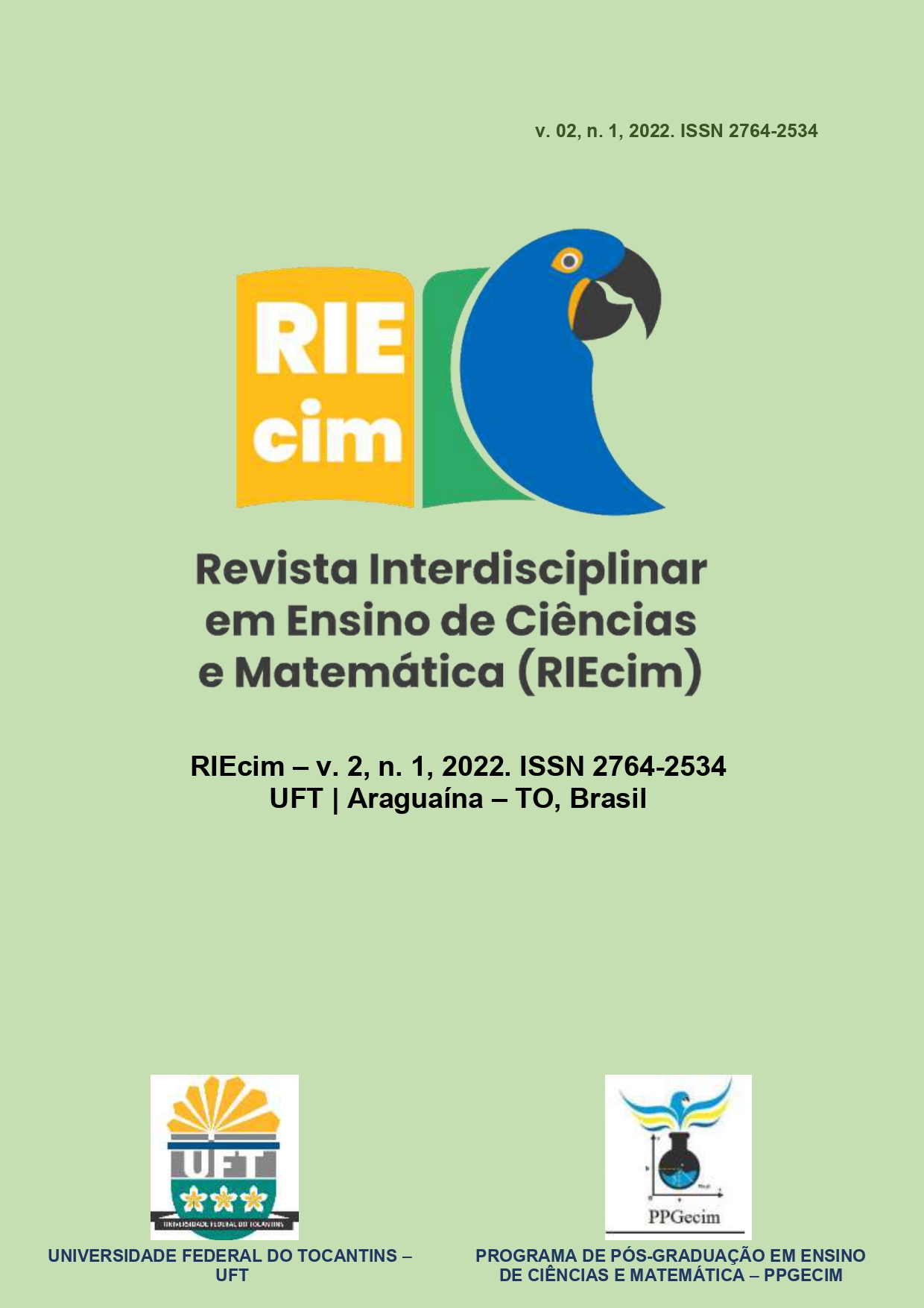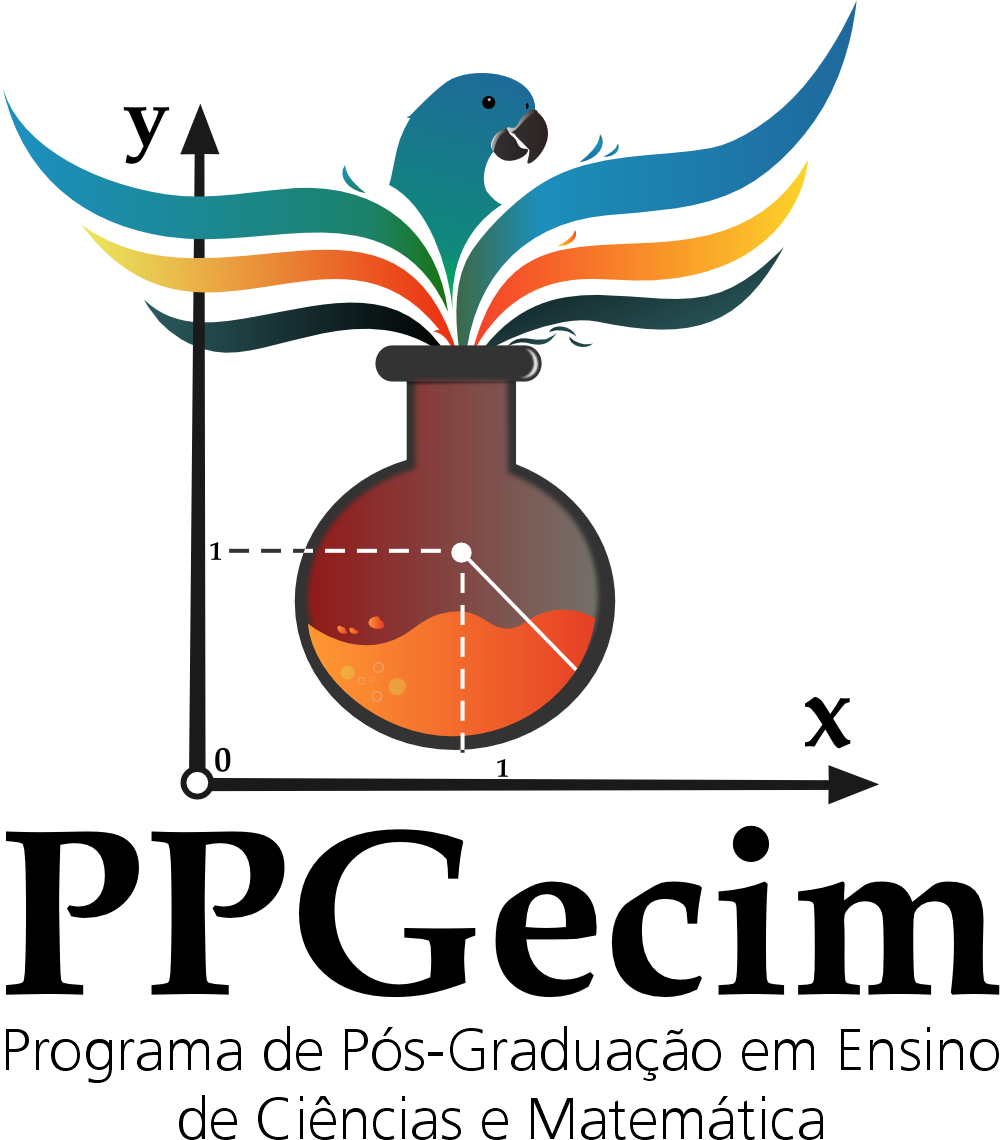THE USE OF CONCEPT MAPS IN BIOLOGY TEACHING
an indisciplinary alternative learning strategy adopted by the Pedagogical Residence Program for the Genetics module
DOI:
https://doi.org/10.20873/riecim.v2i1.14022Keywords:
Significant Learning, Teaching of Genetics, Teaching and learningAbstract
Concept maps were developed to promote meaningful learning (AUSUBEL et. al, 1989) and can be considered schematic resources to represent a set of meanings and concepts included in a structure of propositions for the elaboration of a relational web (ANASTASIOU & ALVES, 2007). Having conceptual maps as an alternative strategy for teaching biology in the context of genetics, the objective of this work is to present the experiences lived by the Pedagogical Residency Program of the Federal University of West Bahia (UFOB) in the Genetics Module at the Instituto Federal de Educação, Science and Technology of Bahia (IFBA) with class 721 of the 2nd year of the Integrated Technical Course in Informatics. The activities carried out through collaborative work groups and individually, in order to promote social integration and student-centered learning (MICHAEL, 2006; MASCOLO, 2009). We also used technological learning tools and alternative methodologies for teaching mathematics and obtained effective practical teaching results in terms of commitment, complicity and interdisciplinarity of pedagogical knowledge.
References
AMABIS, J. M.; MARTHO, G. R. “Navegando em mapas de conceitos”, em Temas de
biologia: propostas para desenvolver em sala de aula. Moderna: São Paulo, n. 2., 1996.
ANASTASIOU, L. G. C; ALVES. L. P. Processos de ensinagem na universidade: pressupostos
para estratégias de trabalho em aula. Joinville: Santa Catarina, 2007.
AUSUBEL, D. P; NOVAK, J. D; HANESIAN, H. Psicologia educativa. Trillas: México, 1989.
BRASIL, Projeto Pedagógico do Curso Técnico de Nível Médio em Informática. Ministério Da
Educação. Secretaria de Educação Profissional e Tecnológica do Instituto Federal de Educação,
Ciência e Tecnologia da Bahia – Campus Barreiras, 2016.
DEPRESBITERIS. L; TAVARES. M. R. Mapas conceituais: instrumentos e técnicas de
avaliação da aprendizagem. Senac: São Paulo, cap. 6, 2017.
FAZENDA, I. C. A. (Org.) Práticas Interdisciplinares na Escola. Cortez: São Paulo, 13. ed.,
GATTI, B. A. Formação de professores no Brasil: características e problemas. Educ. Soc.:
Campinas, v. 31, n. 113, p. 1355-1379, 2010.
HOLANDA, D. S; SILVA, C. S. M. A. Contribuição do Pibid na formação docente: um relato
de experiência. Anais do XI Encontro Nacional de Educação Matemática – ISSN 2178- 034X.
p 1- 13, 2013.
JAPIASSU, H. Interdisciplinaridade e patologia do saber. Imago Editora: Rio de Janeiro,1976.
MASCOLO, M. F. Beyond student-centered and teacher-centered pedagogy: teaching and
learning as guided participation. Pedagogy and the Human Sciences, vol. 1, n. 1, p. 3-27, 2009.
MICHAEL, J. Where’s the evidence that active learning works? Advances Physiology
Education, n. 30, p. 159-167, 2006.
MICHAELSEN, L. K; KNIGHT, A. B.; FINK, L. D. Team-based learning: a transformative
use of small groups in college teaching. Sterling. VA: Stylus Publishing, LLC, 2004.
MOREIRA, M. A; BUCHWEITZ, B. Novas estratégias de ensino e aprendizagem: os mapas
conceituais e o vê epistemológico. Plátano: Lisboa, 1993.
NÓVOA, A.(Org.). Profissão Professor. Porto: Porto, 2. ed.,1992.
REGO, E. C. M. Interdisciplinaridade e Ensino de Ciências Naturais: proposta de estágio
supervisionado na Educação Básica. Disponível em:
<https://repositorio.unb.br/handle/10482/24266> Acesso em: 28 de janeiro de 2022.
SCHÖN, D. Formar professores como profissionais reflexivos. In: NÓVOA, A. Os professores
e a sua formação. Dom Quixote: Lisboa, 1992. 158 p.
ZABALA, A. Enfoque globalizador e pensamento complexo. Artmed: Porto Alegre, 2002.
ZEICHNER, K. M. A formação reflexiva de professores: idéias e práticas. Educa: Lisboa, 1993.
p.12-52.
Additional Files
Published
Versions
- 2023-01-04 (2)
- 2022-07-27 (1)
How to Cite
Issue
Section
License
Copyright (c) 2022 Kairo Dourado Barbosa, Lean Oliveira Pereira, Clívio Pimentel Júnior

This work is licensed under a Creative Commons Attribution-NonCommercial 4.0 International License.
Copyright Policy
Copyrights are retained by the authors, who grant RIEcim the exclusive rights for first publication. Authors will not be remunerated for the publication of their work in this journal. Authors are permitted to enter into separate, additional contractual arrangements for the non-exclusive distribution of the work's published version in this journal (e.g., post it to an institutional repository, on a personal website, publish a translation, or as a book chapter), with acknowledgement of authorship and initial publication in this journal. The Journal's editors have the right to make textual adjustments and adaptations to conform to publication standards.
Open Access Policy
This journal provides immediate open access to its content, following the principle that freely providing scientific knowledge to the public contributes to the global democratization of knowledge. Users can read, download, copy, distribute, print, search, or use the content for any legal purpose, respecting national copyright laws and without seeking prior permission from the publisher or the author. The opinions presented in the articles are the responsibility of the authors. The Journal does not charge Article Processing Charges (APCs).
Licensing Policy - Usage License
Licensed under the Creative Commons Attribution-NonCommercial 4.0 International (CC BY-NC 4.0) License. This license allows sharing, copying, redistributing the manuscripts published in RIEcim in any medium or format. Additionally, it allows adapting, remixing, transforming, and building upon the material, as long as proper credit is given to the author and initial publication in this journal is acknowledged.


























